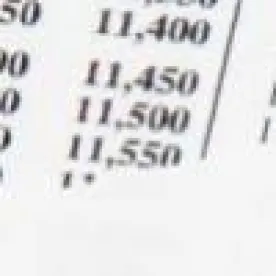“Substantial economic presence” nexus standard formally embodied in regulation.
As expected after recently having filed an economic impact statement, the Mississippi Department of Revenue on November 1 filed its final remote seller use tax regulation with the Secretary of State. The new regulation will be effective December 1, 2017, and contains numerous changes from the original proposal issued in January (see prior Jones Walker coverage here, here, here, and here). The notice contains no public hearing or comment period, so it is unlikely there will be any further revisions prior to the effective date.
“Substantial economic presence” standard finalized.
The final regulation retains the original $250,000 annual sales standard, providing that anyone having that level of sales into the state over the prior twelve months has “substantial economic presence” and has use tax nexus if those sales are coupled with purposeful and systematic exploitation of the market.
The original proposal based the testing period on the previous calendar year’s sales, whereas the final version applies it on a rolling twelve-month basis. Under both versions, the collection requirement is triggered prospectively once that threshold is met, and does not apply retroactively to the sales occurring during that test period.
As written, however, the new rolling standard could result in a seller temporarily having substantial economic presence based on a brief spike in sales, only to have them fall below that standard a few months later. It is unclear whether the Department will allow a seller in that circumstance to cancel its use tax registration until it again had a sales spike and exceeded the threshold over that rolling test period.
What constitutes “purposefully or systematically” exploiting the market?
The Mississippi use tax statutes do not make any reference to “substantial economic presence” or contain the $250,000 standard, but they do purport to require a foreign seller to collect and remit use tax if that seller “purposefully or systematically” exploits the consumer market. The final regulation provides the following examples the Department considers to meet this standard:
- Television or Radio advertising on a Mississippi station;
- Telemarketing to Mississippi customers;
- Advertising on any type of billboard, wallscape, bus bench, interiors and exteriors of buses or other signage located in Mississippi;
- Advertising in Mississippi newspapers, magazines or other print media;
- Emails, texts, tweets and any form of messaging directed to a Mississippi customer;
- Online banner, text or pop up advertising directed toward Mississippi customers;
- Advertising to Mississippi customers through applications “apps” or other electronic means on customer’s phones or other devices; or
- Direct mail marketing to Mississippi customers.
In the context of electronic commerce, the final regulation does not disclose any specific criteria the Department will use to determine whether any of these enumerated activities are “directed toward a Mississippi customer” as opposed to the online market generally. For example, a seller could sponsor an online banner or pop-up advertisement on a national news website or social media site targeted to the public generally, but not specifically to Mississippi. If a Mississippi resident stumbles upon that website, can the seller be deemed to have specifically targeted that customer or the Mississippi consumer market in particular? Likewise, will the Department rely on cookies, phone or credit card billing addresses, actual internet access points (i.e., tower locations, wifi hotspots, etc.), or some other criteria to determine whether Mississippi was the targeted market for a seller’s texts, emails, tweets, and “any form or messaging”?
These distinctions could be very important not only in determining if the seller meets the regulation’s criteria, but also from a constitutional perspective. The lack of clarity on these points raises substantial vagueness questions and may render the regulation constitutionally suspect on due process grounds even if Quill’s physical presence standard is eventually overturned.
Is $250,000 nexus threshold limited solely to tangible personal property sales?
In what may be a critical nuance, the final regulation removed the reference to “retail sales of tangible personal property” when enacting the $250,000 sales threshold. Under the original proposal, it appeared clear that only tangible personal property sales would be considering when applying that standard.
By removing that reference in these final provisions, however, the Department may be signaling that it intends to make the initial nexus determination based on all sales activities, potentially including wholesale transactions, services and sales of intangible property. Although the regulation only requires the addition of the use tax to sales of tangible personal property, this new distinction could be a trap for the unwary and may require sellers to modify their data collection processes to encompass a broader range of activities when calculating that $250,000 trigger.
No voluntary compliance safe harbor in final regulation.
The original proposal provided that sellers who voluntarily registered by July 1, 2017, would be subject to the regulation strictly on a prospective basis, but that the Department would apply the regulation retroactively and without any statute of limitations to those who did not. That language was removed from the final version.
Uncertainty regarding effective date.
The final regulation states that the regulation applies to all transactions on or after December 1, 2017. It does not specify, however, whether that means the rolling twelve-month test period will be measured by transactions beginning on that date or if the collection requirement begins on that date based on the preceding twelve months’ sales.




 />i
/>i

